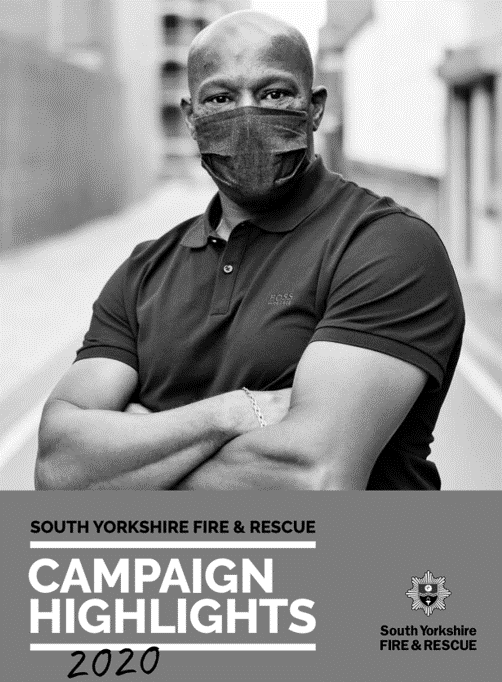How do you find time for evaluation when the day-to-day never ends?
by Jack Grasby
It’s a question we’ve all asked ourselves and, let’s be honest, it pre-dates the pandemic.
Today, though, there’s an added emphasis on the never ends part.
I’ve heard stories over the last few weeks of public sector communicators working 12 hour days as standard – with tea at 8pm now being the norm.
Then there’s colleagues who, due to work pressures and home schooling, are having to stretch their to-do lists over seven days rather than the traditional five.
The sector has, without doubt, never been so busy.
Yet this is exactly why our team knew that, when we sat down to discuss our annual review of the year, we simply had to carve out the time to make it happen.
Because whilst it is now harder than ever to find the time to measure our work, doing so has arguably never been more important.
For without it, a year’s worth of hard graft risks being forgotten.
And, of course, there’s a range of other benefits to such a process, too. We took away many lessons that we did not expect.
Here’s six things we learnt, and realised, as we stopped to reflect:
1. It’s not all about the numbers
We’re a results focused team and, when we set out to tackle a dramatic spike in garden fires early on in the pandemic, the numbers mattered.
But when we took our Black History Month exhibition online in October, the numbers turned out to be only one small part of the equation.
Our core objective was front and centre, of course, but it wasn’t everything. There was the reaction from staff and public, the feedback on our assets and how well the team worked together – all of these things mattered too.
We also learned more about developing websites and how to host a load of portraits, which had previously been part of a printed exhibition, online.
Outcome objectives are important but if at times you don’t land them, and this will happen, don’t throw the baby out with the bathwater. Try to look for the other positives.
2. Evaluation can be rocket fuel for team morale
Evaluation isn’t just about keeping the bosses sweet.
Receiving our Campaigns Highlights booklets was a highlight in itself after what had been a crazy, crazy year.
Seeing the work we had done in print form (lots of which we’d forgotten about) was a huge boost for the team and it will no doubt act as motivation for the year ahead.
Reflecting on your achievements can be a really great form of self-care.
3. A stitch in time really does save nine
On the whole it must have taken at least a day to pull our review of the year together.
Yes, that’s a day that could’ve been spent on other things, such as a briefing for staff around COVID or some more fire safety campaigning.
But it’s also a day that, from our experience, will have a huge return investment in terms of days, weeks and perhaps even months saved.
We’ve found that, having seen what we can deliver as a team, colleagues now ask less of us and place more trust, and decision making power, in our hands.
And, when we do get the inevitable requests to do things that we know won’t work, we have hard evidence to bring to the table and help us argue our case.
Without it, it’s our word against theirs.
4. Good foundations are key
Measuring your work doesn’t have to be a painstaking process and you can save huge amounts of time by getting the foundations right.
Over the last two years we have made sure to set very clear objectives right at the start of any project we do.
Generating sign ups to a service, and reducing incidents, are in.
Raising awareness and educating people are out.
By making it really clear what you’re trying to do at the outset and, importantly, how the measurement will work, you’re making the questions at the end much easier to answer.
5. Simple works and, usually, wins
This is perhaps an obvious point and slightly hypocritical. We have, after all, put our annual review into a glossy printed booklet.
However, not all evaluation and reflection has to look like this.
Quickly scribbling your team’s achievements down on a side of A4 paper, and sharing it with others, is enough to be a huge confidence booster.
Equally, a five minute presentation that gives a whistle-stop tour of what you did, how you did it and what the outcome was can be really effective in earning trust.
6. Flying your own flag is essential
Our work is based on promoting and showcasing others, yet very often we fall down when it comes to sharing our own achievements.
Public sector communicators are amazing and have played a crucial role in the fight against COVID-19 over the last year.
That’s a flag to be proud of – don’t forget to fly it!
Jack Grasby is campaigns manager with South Yorkshire Fire and Rescue Service. You can say hello on Twitter at @JackGrasby
*Sign up for the comms2point0 eMag*
The comms2point0 eMag features exclusive new content, free give-aways, special offers, first dibs on new events and much, much more.
Sound good? Join over 2.5k other comms people who have subscribed. You can sign up to it right here

